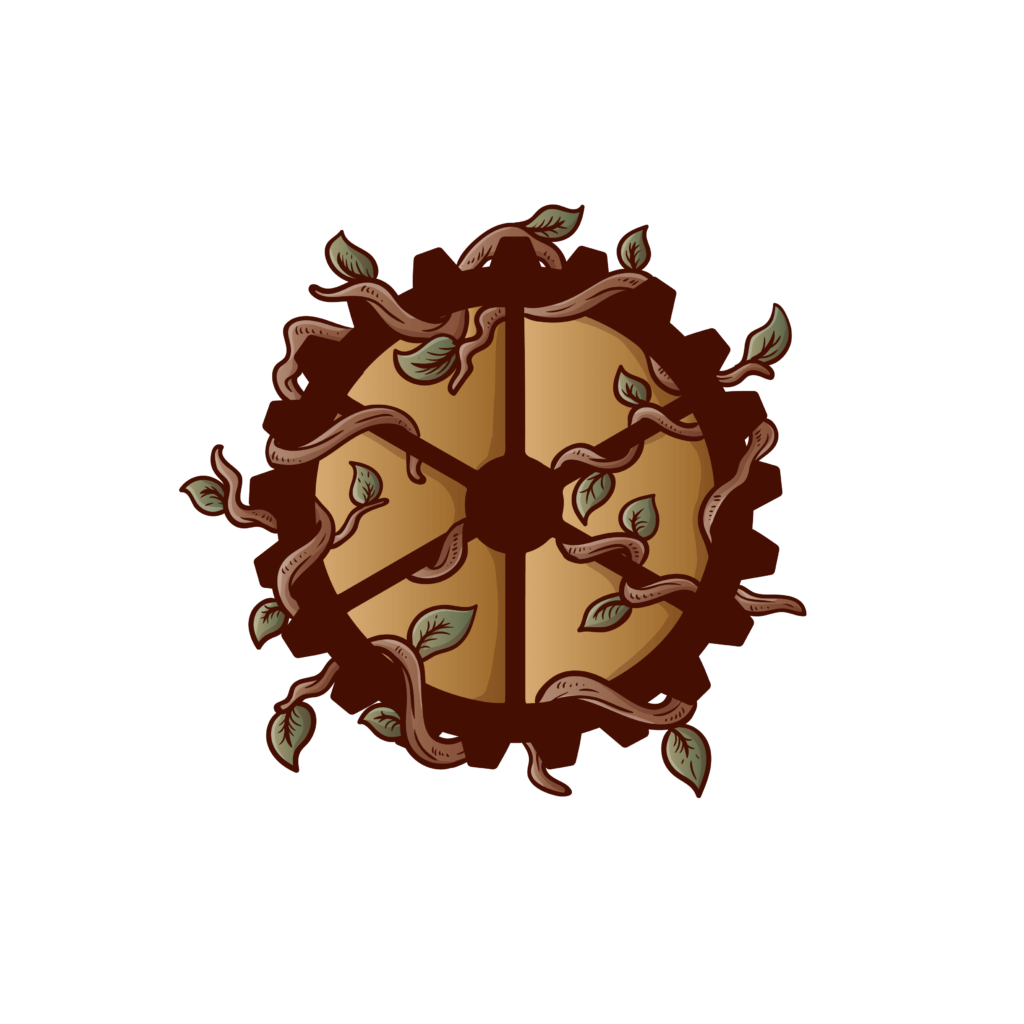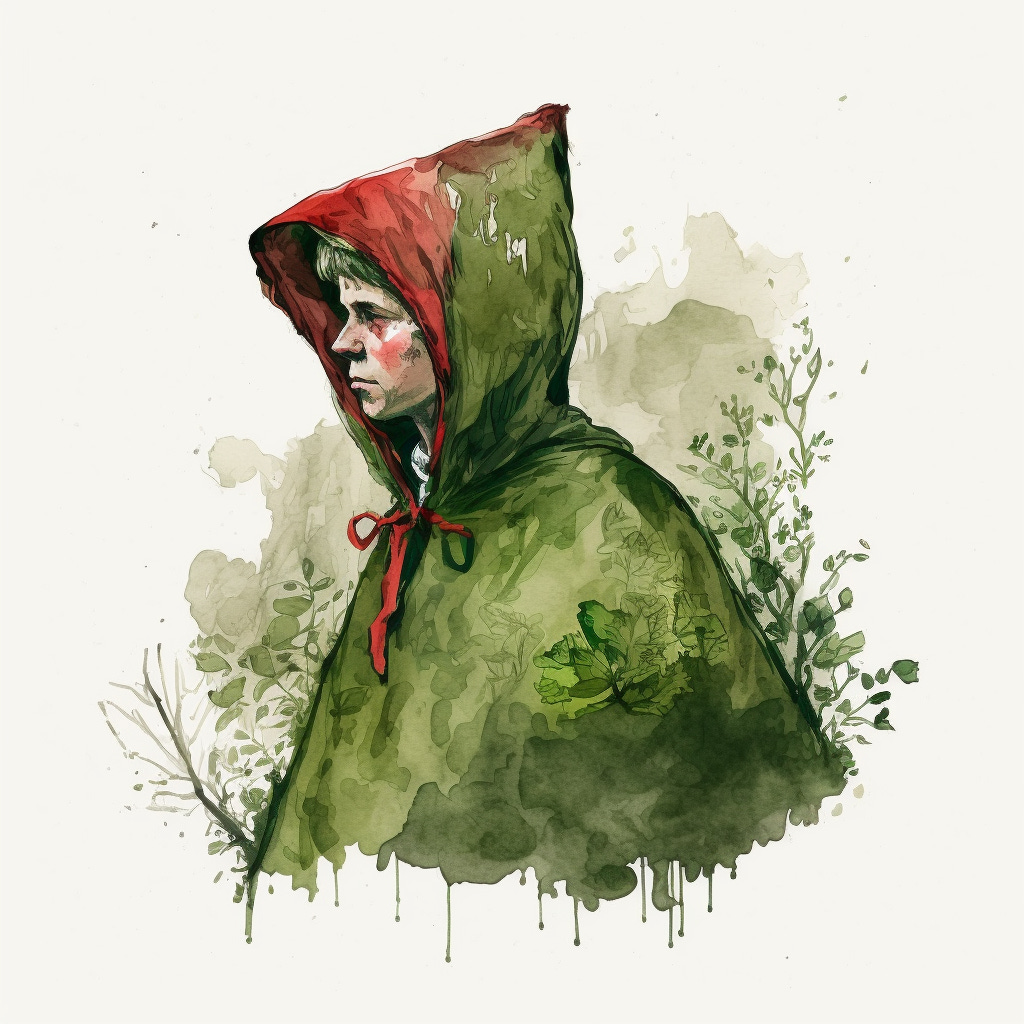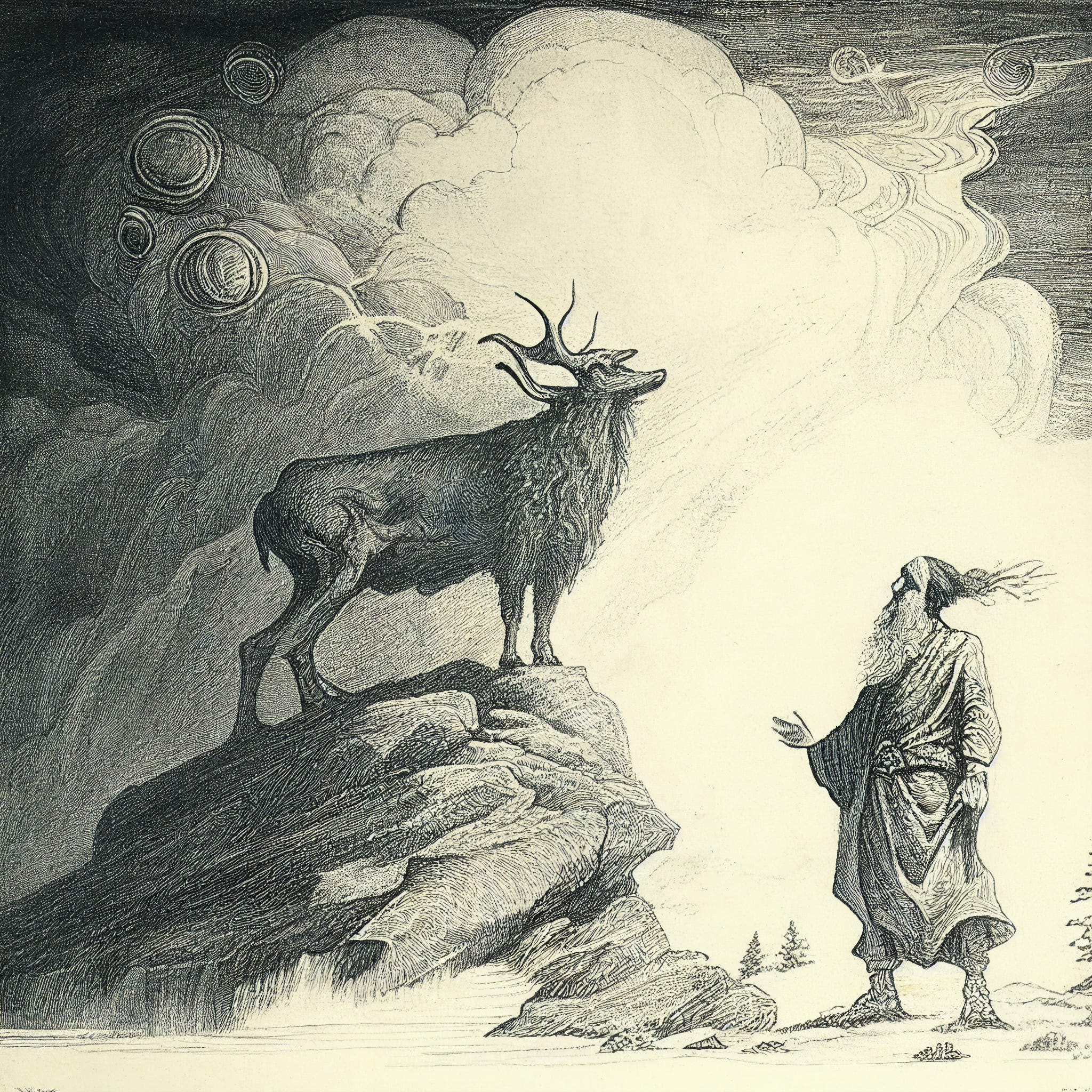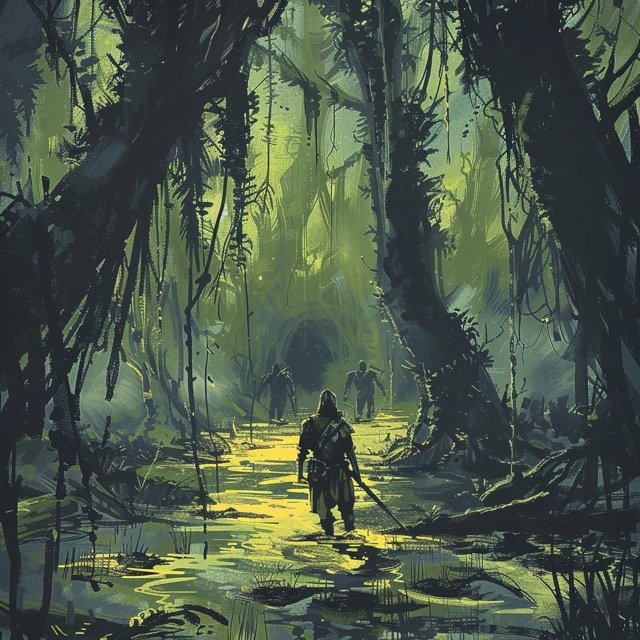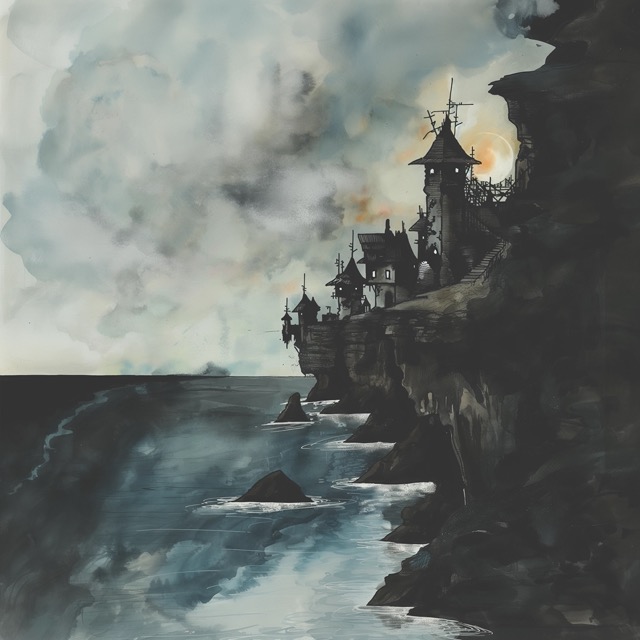The Song of Strong Ale & the Bloody Bonnets
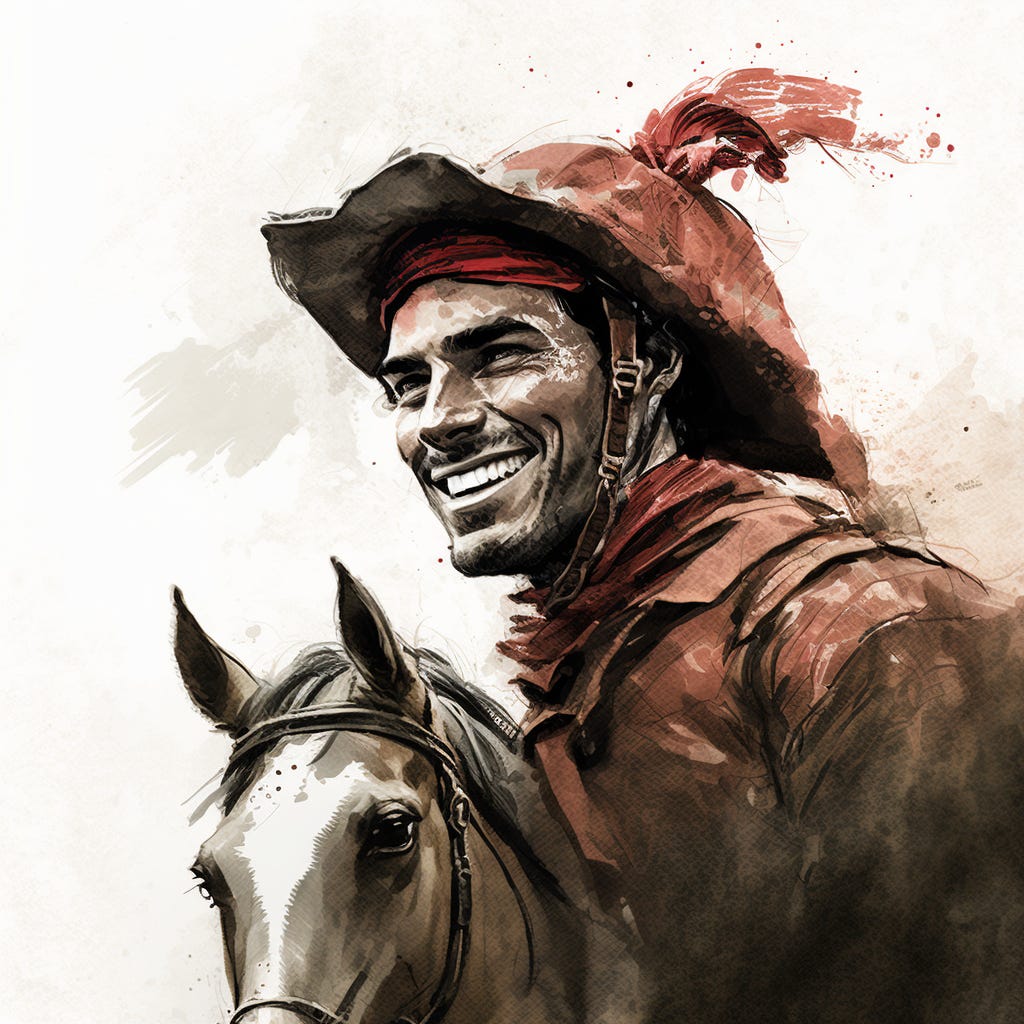
Found comfortable lodgings. Saw display of local arts. Local soldiers want for discipline. Expect delays in tithes.
Official Report by Dahlchus Mithryen to the Imperial Governor, East Sindar Region
From the personal journal of Dahlchus Mithryen:
It has been a week since I arrived in Lairdston from Dunald’s court, and I am still reeling from my run in with Tom A’Fletch, the leader of the gang of brigands known as the Bloody Bonnets. They are almost folk heroes here, and I have heard many tales sung of them within the Inn of the Shrieking Sheep where I am staying.
In truth, it may be more than songs. The common folk whisper that the usurper, Dunald Cumber, mutilated the former Chieftain of Lairdsmont, Malcom Tavish, when he took power. The bard in the inn sang further that a handful of Malcom’s most loyal followers escaped Lairdsmont during the coup. Before doing so, they dipped their service caps into the blood of their butchered master, to remind them of their old pledge of service and to consecrate new oaths of vengeance against Dunald and his men.
Tonight, that self-same, motley-clad troubadour regaled us with the tale of how one of the Bonnets, one Algrin the Stout, came to escape a trap laid by Dunald’s men in this very tavern.
“’Twas said there ne’er was a more ruddy man, nor one who could quash more strong ale
So, with wily plot ‘round games of drink, Dunald’s men made to catch the Bonnet most hale”
As he sang this ditty, several soldiers bearing Dunald’s sigil, the Cumber boar, turned from their long table and began to heckle and demanded to hear the end of the tale. The singer plucked his lute and told how as Dunald’s men waited in back corners and beneath floorboards while Algrin drank himself near blind, besting the most hearty yeoman in drinking contest after drinking contest. When the trap was sprung, however, both parties found themselves in a quandary.
“When the drink had taken hold of the giant, the soldiers leapt forth from shadows to swarm
But though beer of the inn had slowed the titan’s mind, it gave new vigor to his arm”
The singer continued, saying that even a dozen of Dunald’s men could not wrest hold of Algrin, for the beer of the Shrieking Sheep had doubled his strength. All the same, Algrin was too in his cups to walk out the door of the tavern, much less flee his attackers.
“What do parties do when pursuer cannot subdue & the pursued could not run from the fray?”
“CUT HIS THROAT!” screamed the Cumber soldiers who had since grown rowdy from many slammed-down tankards.
The troubadour continued, saying that the bard present at the inn that day — standing on the very boards he now stood upon — proposed a solution: Since Algrin was too drunk to exit the tavern, the soldiers should simply wait until the drunken stupor wore off. Surely, said the singer, the resulting hangover would render Algrin incapacitated.
Having no better alternative, Dunald’s men sat for their vigil. To entertain them as they waited, the singer proceeded to sing ever-more absurd songs. The soldiers relaxed as they enjoyed the beer that had inspired such battle. But unbeknownst to the inebriated soldiers, this singer was Gyle Piper, the Bloody Bonnet’s soldier minstrel, who designed to use the soldiers’ increasingly drunken state for his own purpose.
“Clever Piper spun verse of every sort, of maids who cavort and animals that connive
With great cheer from fortifying beer the men put Algrin in a wagon for Piper’s ease to drive”
A chorus of boos echoed from the soldiers at the table. “NO,” they insisted, their comrades would not fall for such a blatant ruse. “Very well,” said the singer, “a dram of drink for every lie you catch?” The soldiers were too happy to acquiesce. The singer had no shortage of fanciful tales, and he bought many an ale for the soldiers, curiously with Imperium coin.
As I listened to this tale, Dunald’s soldiers soon fell about themselves across their long table, drunk, and the troubadour made his leave. I saw him exchange a suspicious word with the Innkeeper, and I followed him outside. There, I saw the troubadour untie and gather the reigns of all the soldier’s horses. He mounted one and wheeled it about to face me. As he did, he donned a red bonnet. I knew then that this man and the singer from the tale were one and the same, Gyle Piper.
“Greetings to a fellow chronicler of tall tales. The Bonnets send their regards to the Emperor and hope he finds as much amusement from this tale as we did.”
And with that, he cantered away, the other horses in tow. I watched beneath the awning of the tavern until a shadow enveloped me. I looked back to see a man of great height and width who demanded to know, in a booming voice, where Piper had gone. I told him, and the giant sighed in annoyance before he tossed a full keg along with two hams and a wheel of cheese into a nearby wagon loaded high with wool for the Imperial taxes. With the strength of several oxen the giant, who I could only guess was Algrin, grabbed hold of the wagon yoke and pulled it away in pursuit of Gyle.
When I returned to my room that night, the door lay cracked in twain in the hallway along with the shards of the frame that held it. I knew what beast could rip these from their iron hinges.
To be continued…
